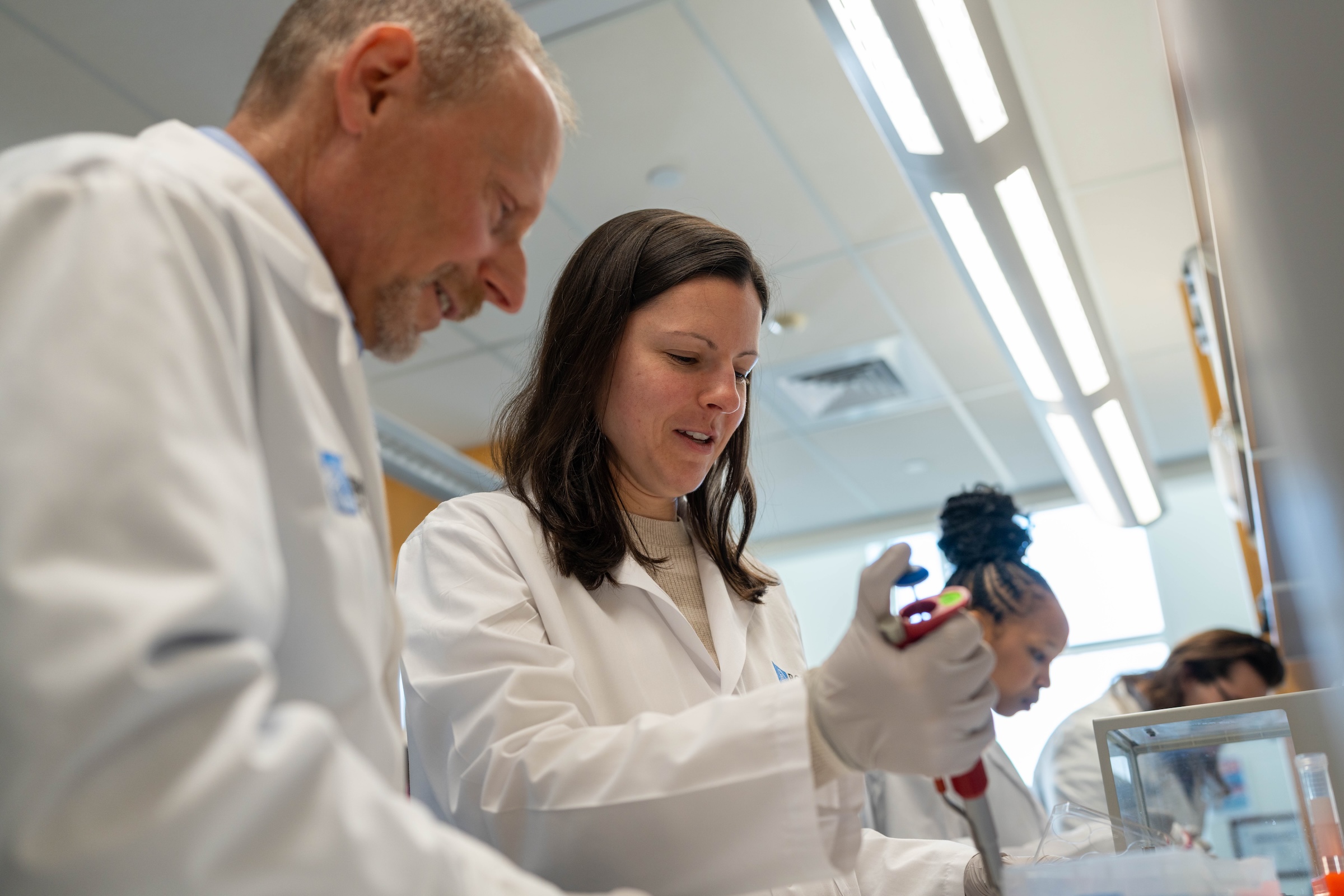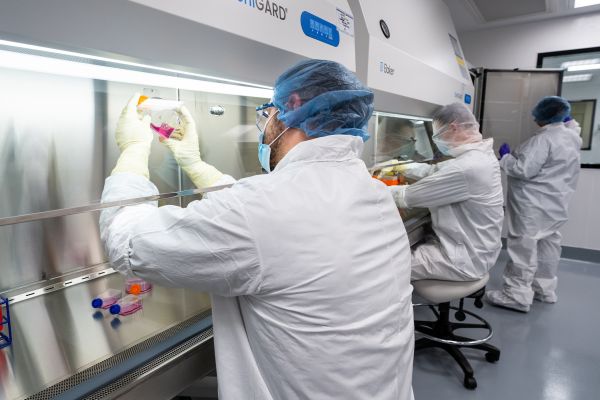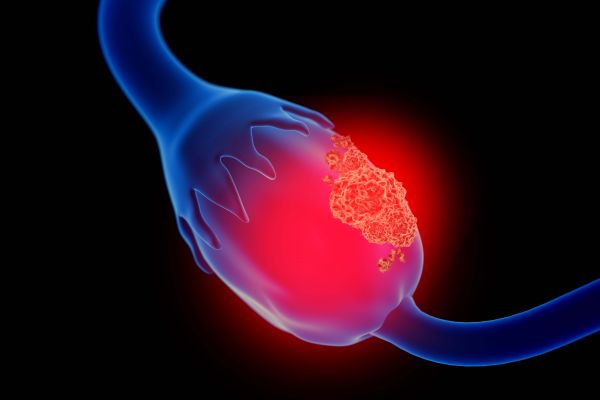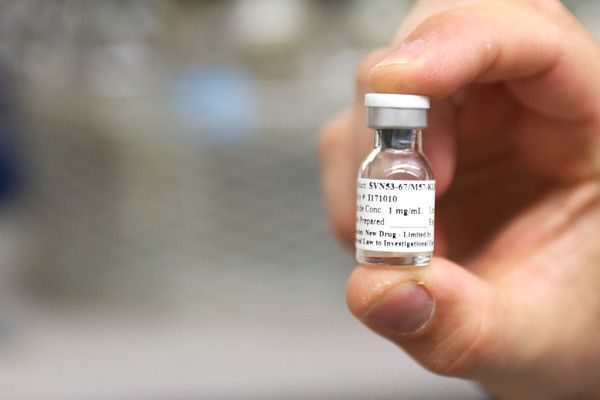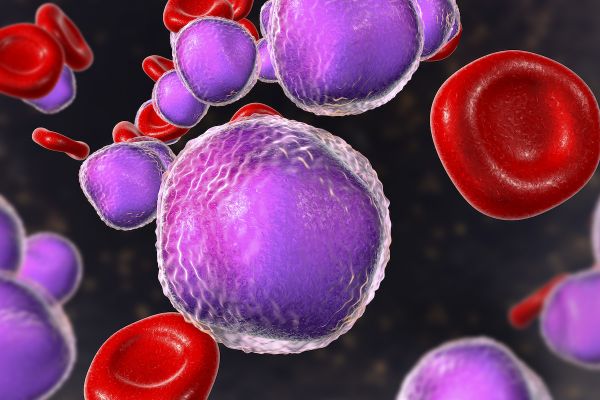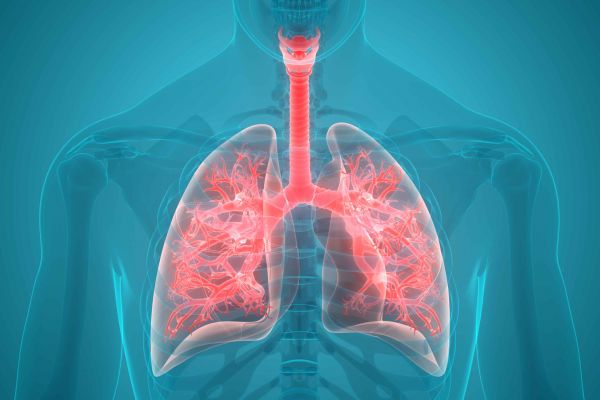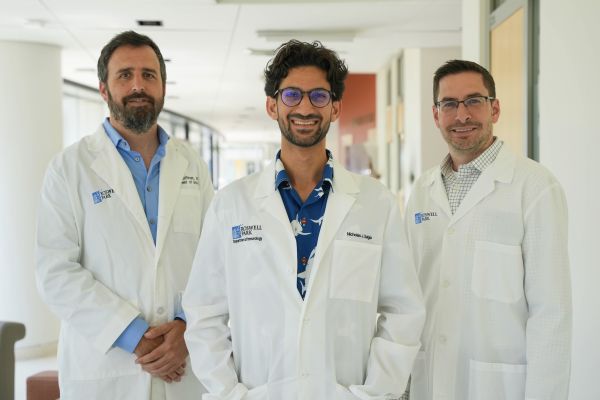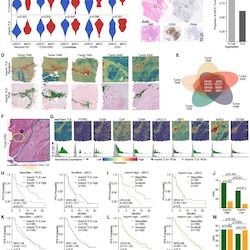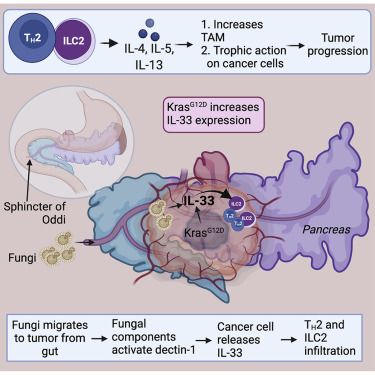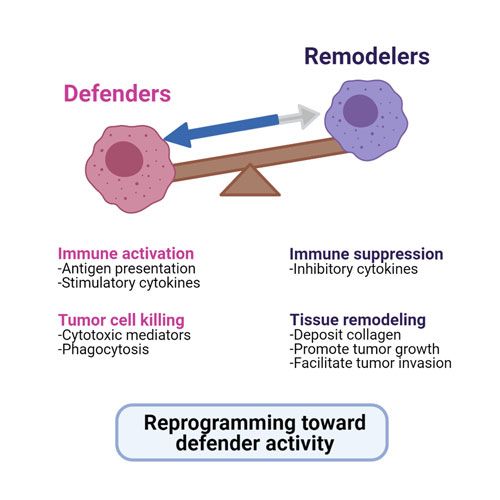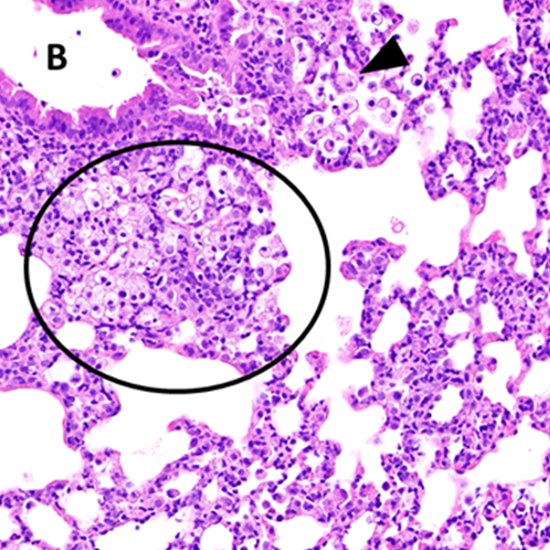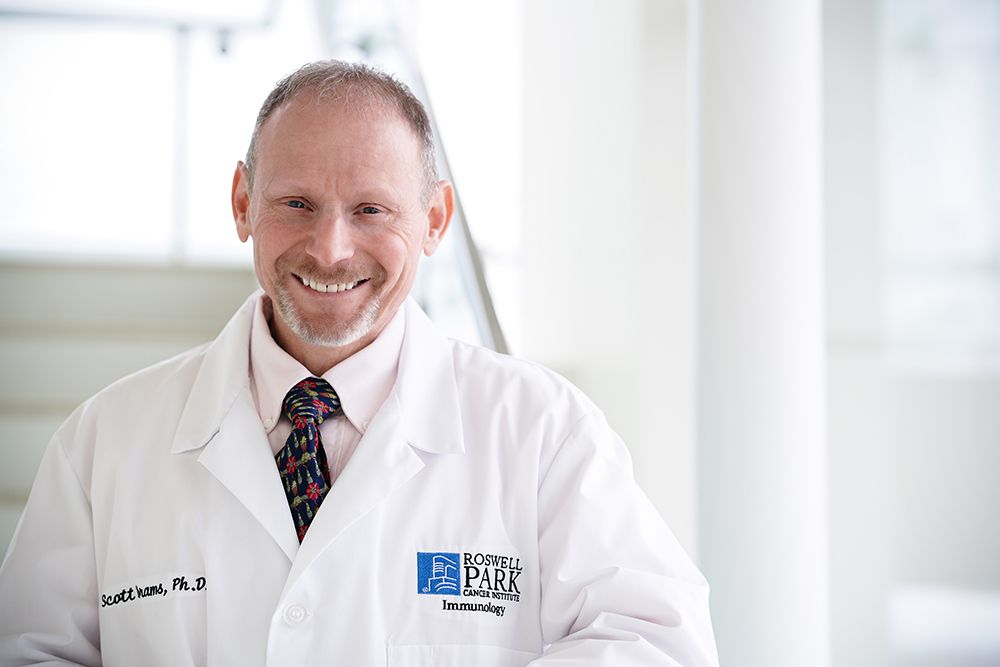Strengthening immune cells to target and kill tumors
New insights. New therapies. New momentum. The scientists in Roswell Park’s Department of Immunology are validating decades-old predictions that the immune system is exquisitely sensitive to tumor antigens. And we’re proving that it’s quite capable of mounting long-term protection against future cancer recurrences.
By understanding the immune system, we enhance the current immunotherapies being used in the cancer clinic (e.g., checkpoint inhibitors and vaccines), we are developing completely new strategies that identify vulnerable targets blocking the development of effective anti-tumor immunity.
Immunology in the news
Recent accomplishments
Roswell Park has a long history of discovery in tumor immunology, and we’re unique in that each faculty’s research program has a major focus on cancer and tumor immunology.
Comprehensive tumor-immune profiling reveals mediators of paradoxical immune sensitivity in sarcomatoid renal cell carcinoma
Cancer Cell
Principal Investigator: Dr. Jason Muhitch
Fungal mycobiome drives IL-33 secretion and type 2 immunity in pancreatic cancer
Cancer Cell
Principal Investigator: Dr. Prasenjit Dey
Redirecting macrophage function to sustain their “defender” antitumor activity
Cancer Cell
Principal Investigator: Dr. Scott Abrams
An Animal Model of Inhaled Vitamin E Acetate and EVALI-like Lung Injury
New England Journal of Medicine
Principal Investigator: Dr. Yasmin Thanavala
Meet the Chair
"I strive each and every day to never lose sight of how what we do in the lab can positively impact our patients – to me, this is the most inspiring and motivating factor for why we do what we do."
What we do
Tumor Immunology & Immunotherapy
Cellular therapy. Cancer vaccines. Oncolytic viral therapy. Immune-response modifiers.
Take a look at how our CCSG research program is changing the future of cancer treatment.
Learn moreAs we understand the molecules and pathways that comprise the immune system, we work toward identifying novel targets for therapeutic intervention and provide patients with a stronger immune system that can prevent and eliminate cancers.
- Identify and characterize molecular components determinants of immunoregulation and development of the immune system and hematopoiesis.
- Study of the biology of intratumoral T-cells and adoptive T-cell therapies involving expanded TILs and in-vitro-sensitized T-cells.
- Identify interactions between innate and adaptive immunity and their distribution that contributes to anti-tumor responses. This includes emphasis on a variety of immune effector cells and trafficking patterns that can enhance TILS and adoptive T-cell therapies.
- Emphasis on intratumoral dendritic cells, macrophages and fibroblasts and their role in tumor progression and a focus on IFN signaling in the TME.
- Understanding the mechanisms which underlie immunosuppression and the role of cells, such as myeloid-derived suppressor cells and macrophages, regulatory T-cells and other immune components in the tumor microenvironment, immune organs and blood.
- Explore the role of environmental and physiological stressors on the effectiveness of the immune system and on the efficacy of immunotherapy.
- Apply our knowledge of anti-tumor immunity to aid in the clinical management of cancer patients, and the development of clinical trials testing novel immune therapies, including vaccines and onco-viral therapies.
- Study the role of inflammation in metastasis and effectiveness of cancer therapies.
A better understanding of mechanisms involved in effective anti-tumor control provides the opportunity for trainees to manipulate these pathways in animal models and potentially generate the opportunity to test new treatment regimens in vivo and in novel patient trials.
Spotlight: Dr. Elizabeth Repasky
“For decades my work has been driven by curiosity about the processes that involve body temperature — and the way those processes affect tumor growth and anti-tumor immunity. This includes an interest in how tumors can disrupt mechanisms we need to stay warm.”
Shared Resources
Few institutions in the nation have the facilities for pre-treatment, manufacturing and post-treatment of immunotherapies and gene therapy clinical trials. Our state-of-the-art facilities and expert researchers attract collaborative partnerships with academic institutions and private industry.
Training the next generation of scientists
The Immunology Department is home base to many of the world’s brightest graduate students, postdoctoral fellows, and other clinical trainees who are conducting innovative research in the field of tumor immunology.
Trainees in our PhD track in Tumor Immunology complete rigorous comprehensive studies that run the complete gamut from basic mechanisms of immune responses, through translational development of novel therapies, to clinical trials.
Our multidisciplinary education model allows students a unique immersive experience, preparing them for successful careers as independent investigators.
Contact Us
Tracy Durski
Department Administrator
Phone: 716-845-3256
Fax: 716-845-1322
Email: Tracy.Durski@RoswellPark.org
